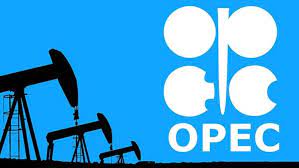APA-Brazzaville (Congo) – Production cuts are intended to stabilise the Congolese domestic market while encouraging new investment in oil exploration.
At the end of last week, the Organisation of the Petroleum Exporting Countries (OPEC) began discussions in Johannesburg, South Africa, to formulate strategies to improve market stability and strengthen cooperation between producing countries.
The Republic of Congo’s Minister of Hydrocarbons, Bruno Jean-Richard Itoua, took part in the landmark meetings during which it was decided to extend oil production cuts until 2025, according to a press release from the African Energy Chamber received by APA on Wednesday.
For the southern African country, the oil production cuts “aim to create stability on the domestic market while encouraging new investment in oil exploration.”
The government of President Denis Sassou Nguesso is “carrying out several exploration and development programmes” that are opening up new geological zones, with hydrocarbon producer Perenco making a shallow-water discovery on its PNGF Sud licence.
The Franco-British company recently completed a 3D seismic acquisition campaign on the Tchibouela II, Tchendo II, Marine XXVIII and Emeraude licences, paving the way for future exploration drilling.
In addition, OPEC and its allies (OPEC+) have started to reduce production in 2022 to address fluctuations in demand and price volatility.
These cuts currently amount to around 5.86 million barrels per day (bpd), or 5.7% of global demand.
About 3.66 million bpd were due to expire at the end of 2024 and have been extended to 2025, while about 2.2 million bpd were due to expire in June 2024 and have been extended to September 2024.
From October 2024 to September 2025, OPEC will phase out the 2.2 million bpd cuts. These production cuts benefit not only producers but also global consumers.
In addition to creating predictable revenue streams for producers, which can stimulate the development of new upstream assets, production cuts are likely to strengthen fiscal stability in oil-dependent countries while supporting economic growth and development.
As Africa’s sixth largest oil producer, the Republic of Congo is keen to use its oil production to drive economic growth.
The country produced 259,000 bpd in April 2024. With more than 1.8 billion barrels of proven oil reserves, neighbouring Democratic Republic of Congo has the capacity to increase production to 500,000 bpd.
The current production cuts will support this goal as market stability creates the conditions for long-term investment, experts say.
OPEC remains committed to enhancing market stability and strengthening the global oil dynamic. The production cuts reflect this commitment and will ensure the continuation of the steady investment that Congo has seen for several years.
New investments in Congolese oil and gas will create a strong and resilient economy, fostering job creation and economic opportunities, in line with President Denis Sassou Nguesso’s vision for our country,’ said Minister Bruno Jean-Richard Itoua.
ODL/ac/lb/as/APA


